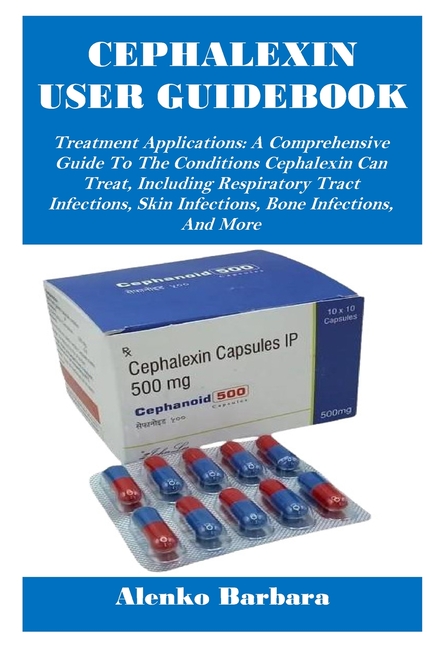Description
CEPHALEXIN USER GUIDEBOOK
Cephalexin is a powerful antibiotic that belongs to the class of medications known as cephalosporins. It works by interfering with the formation of bacterial cell walls, ultimately killing the bacteria and stopping the spread of infection. Cephalexin does not treat viral illnesses like the common cold or flu but is highly effective against many bacterial infections.
How to Use Cephalexin to Treat Bacterial Infections
This guidebook provides in-depth instructions on using Cephalexin safely and effectively. Cephalexin is prescribed to treat a wide range of bacterial infections in different parts of the body, including:
Respiratory Tract Infections: such as pneumonia and bronchitis
Ear Infections: including middle ear infections (otitis media)
Skin and Soft Tissue Infections: boils, abscesses, cellulitis, and infected wounds
Bone Infections: osteomyelitis
Urinary Tract Infections (UTIs): bladder and kidney infections
Dental Infections: abscesses and other mouth infections
This book guides you step by step on how Cephalexin combats these infections, what to expect during treatment, and how to monitor your progress.
Usage and Dosage
Proper dosing is essential to ensure the medicine works effectively while minimizing side effects and resistance. Inside, you'll find:
Recommended Dosage: depending on your age, weight, infection type, and severity
Frequency of Administration: typically taken every 6 to 12 hours
Duration of Therapy: usually ranging from 7 to 14 days, depending on your doctor's advice
How to Take It: Cephalexin can be taken with or without food. Taking it at the same times daily helps maintain consistent levels in your bloodstream.
Missed Doses: what to do if you forget to take a dose, and when to resume your schedule
Completing the Course: why it is vital to finish the entire prescription even if you start to feel better
Vital Information You Need to Know About Cephalexin
This comprehensive guide also sensitively covers the essential details that every patient should understand before and during treatment:
Possible Side Effects: including nausea, diarrhea, abdominal pain, headache, and rash. You'll learn how to distinguish between mild reactions and serious allergic responses requiring immediate medical attention.
Allergic Reactions: Cephalexin may not be suitable for people with penicillin or cephalosporin allergies-this book explains warning signs like swelling, severe rash, or trouble breathing.
Empowering Patients Through Knowledge
The Cephalexin User Guidebook is designed to empower you to take an active role in your treatment. With sensitive explanations and straightforward advice, this book helps you understand:
How Cephalexin works in your body
Why taking it exactly as prescribed matters
How to avoid preventable complications and side effects
How to communicate effectively with your healthcare provider
Whether you are taking Cephalexin for the first time or have used it before, this book will be your trusted reference to help you feel informed, confident, and prepared.
Product Details
- Jun 30, 2025 Pub Date:
- 9798290265131 ISBN-10:
- 9798290265131 ISBN-13:
- English Language




